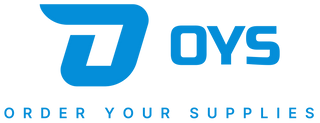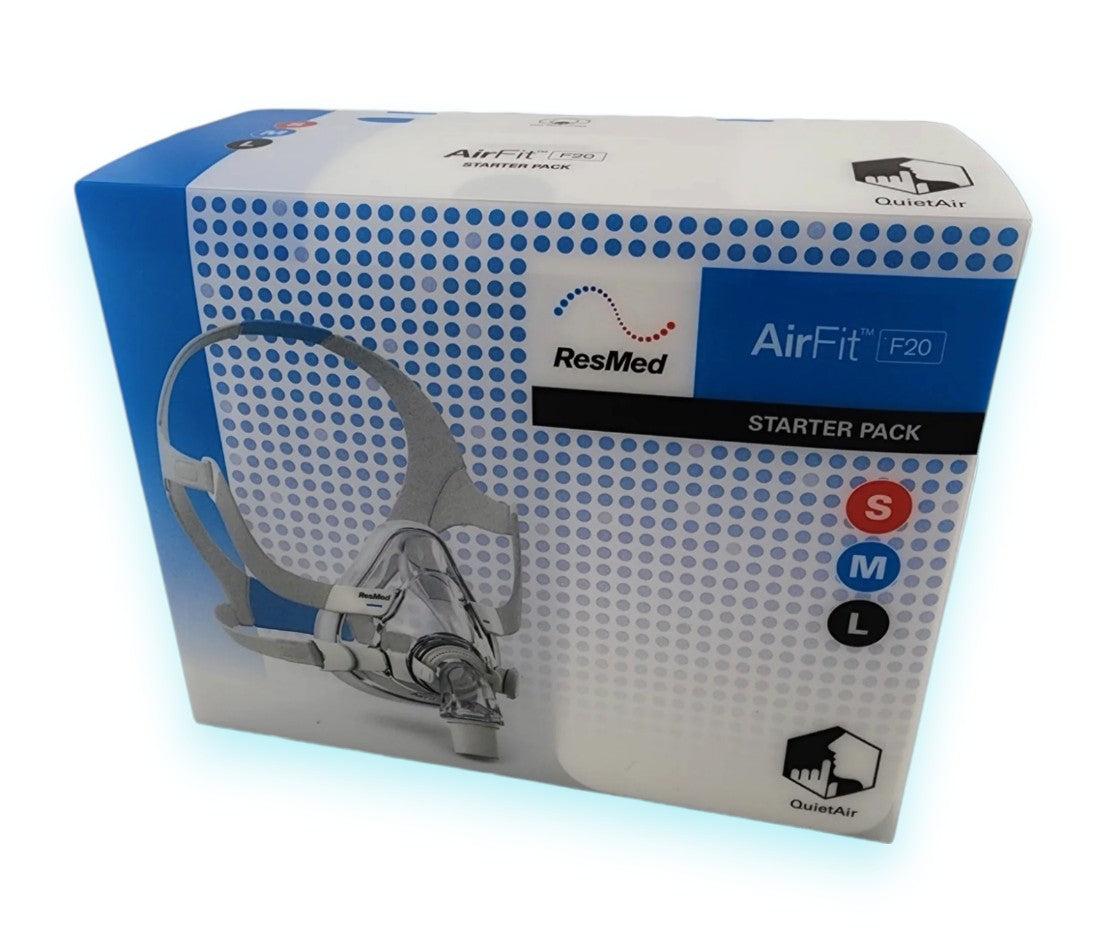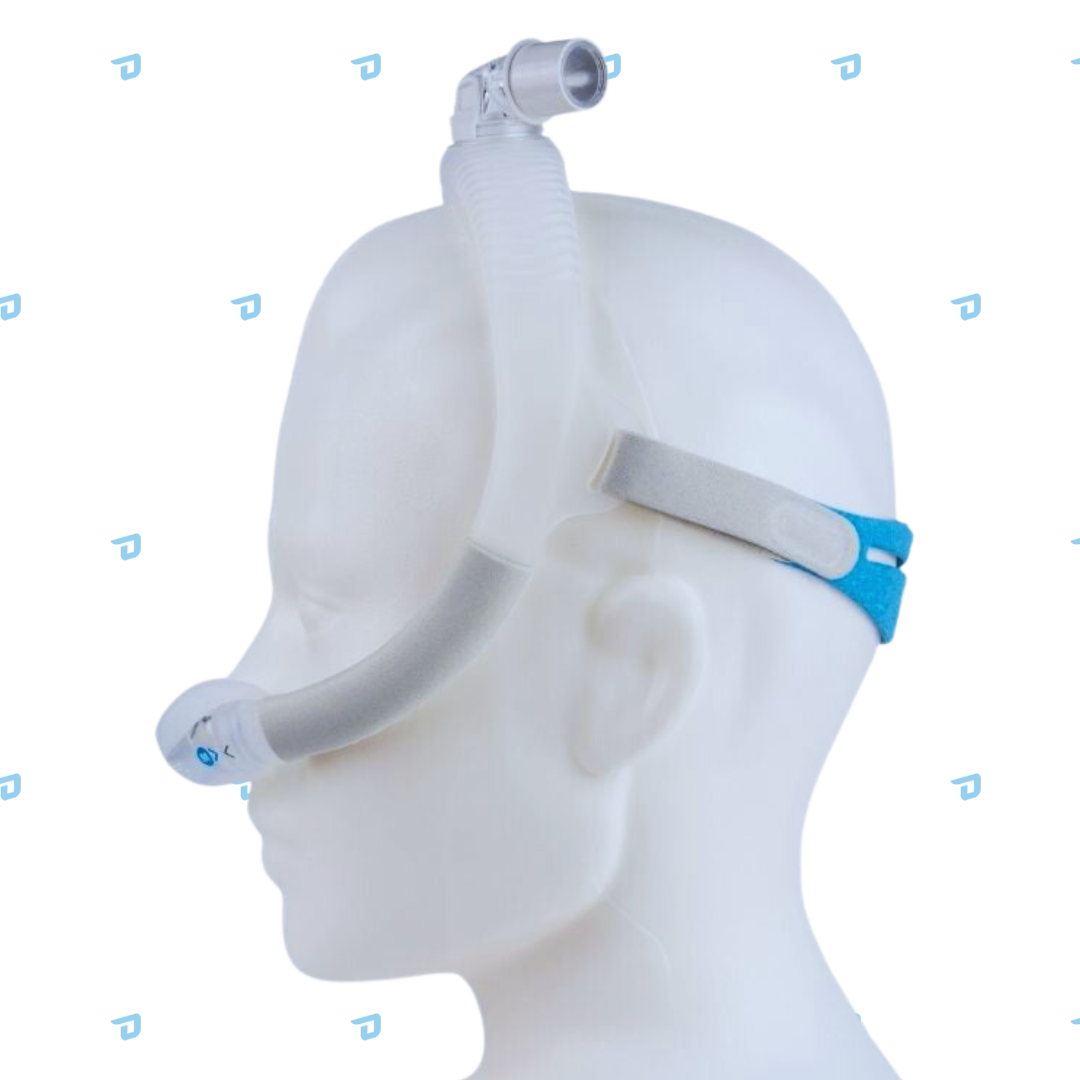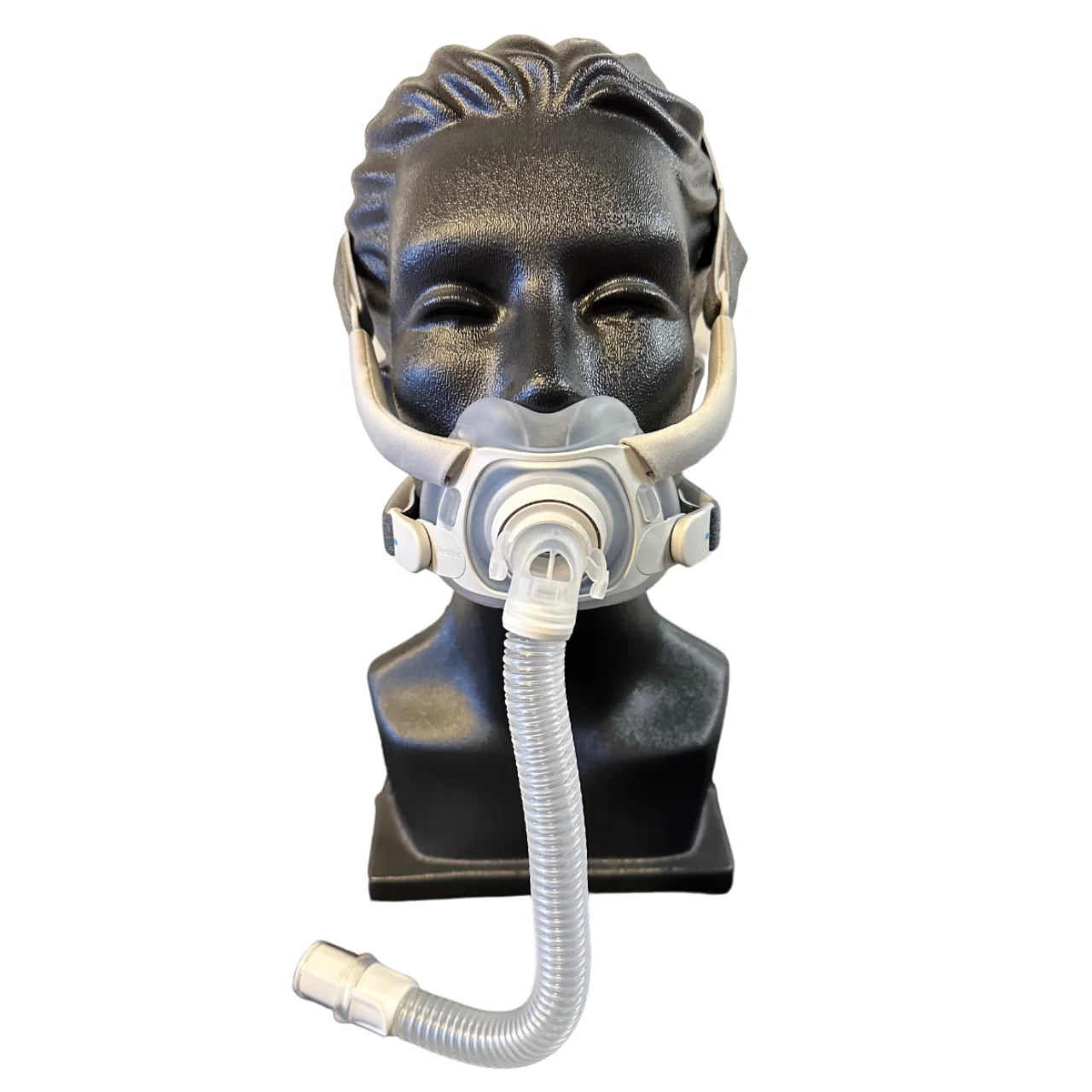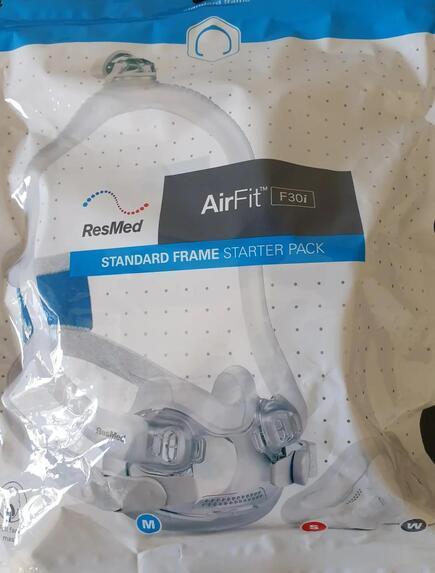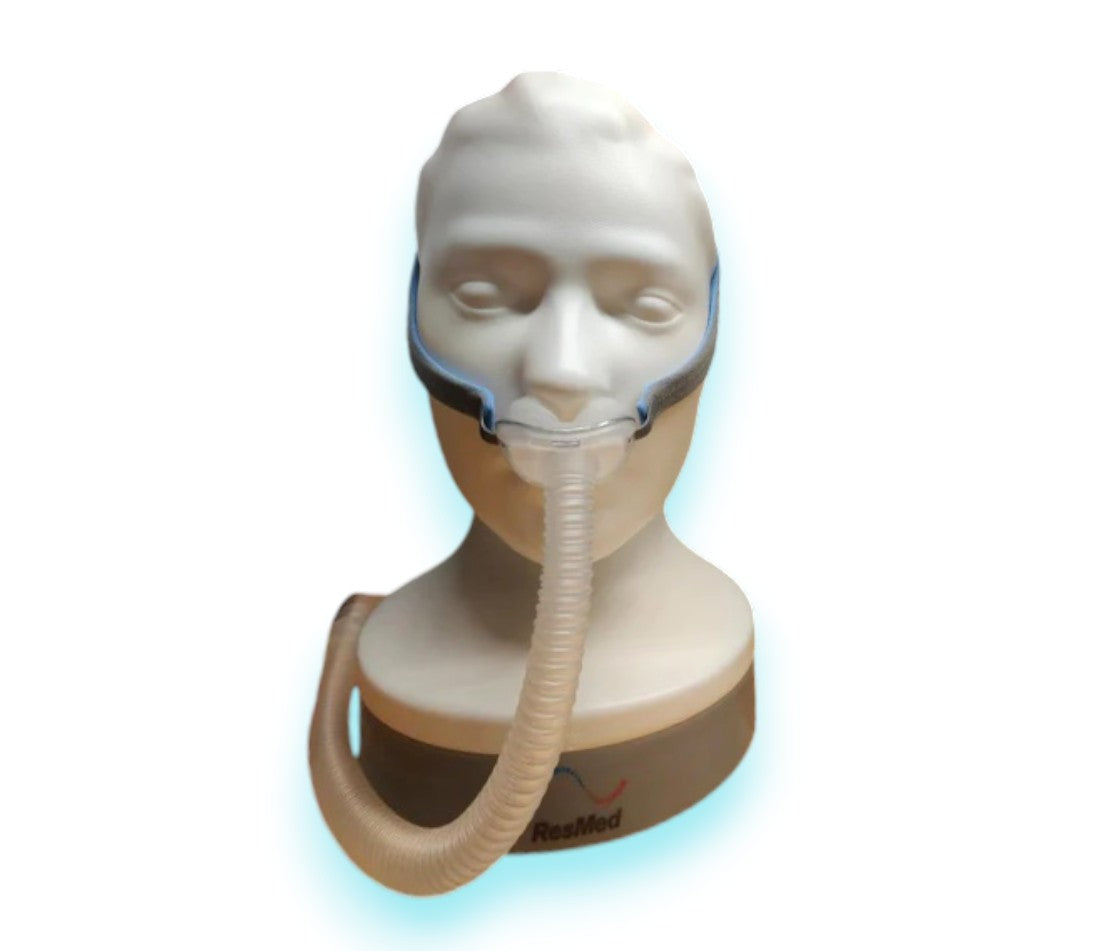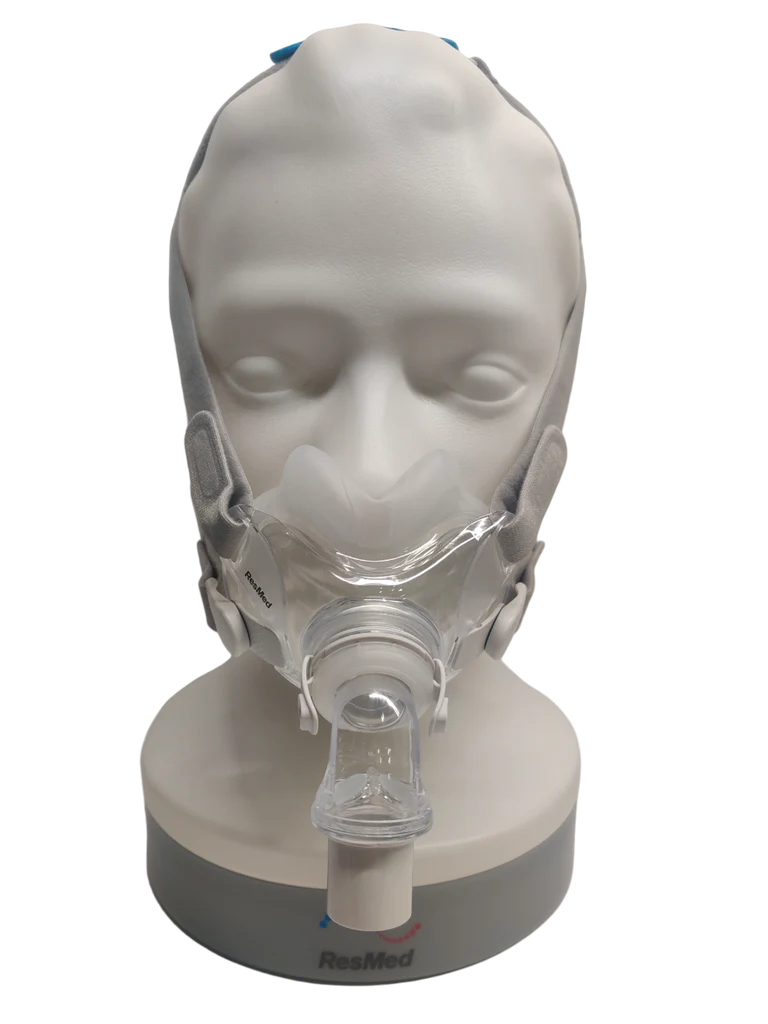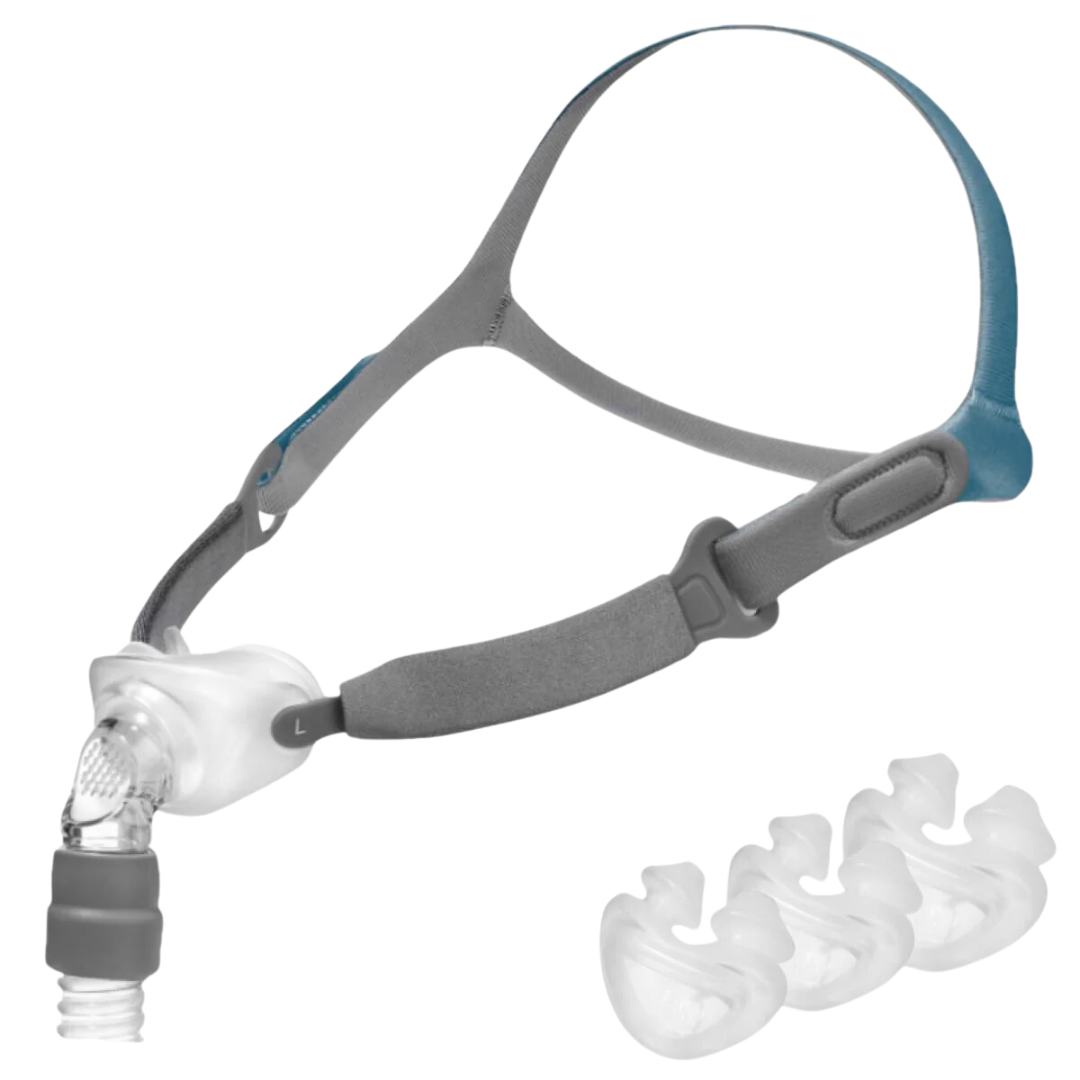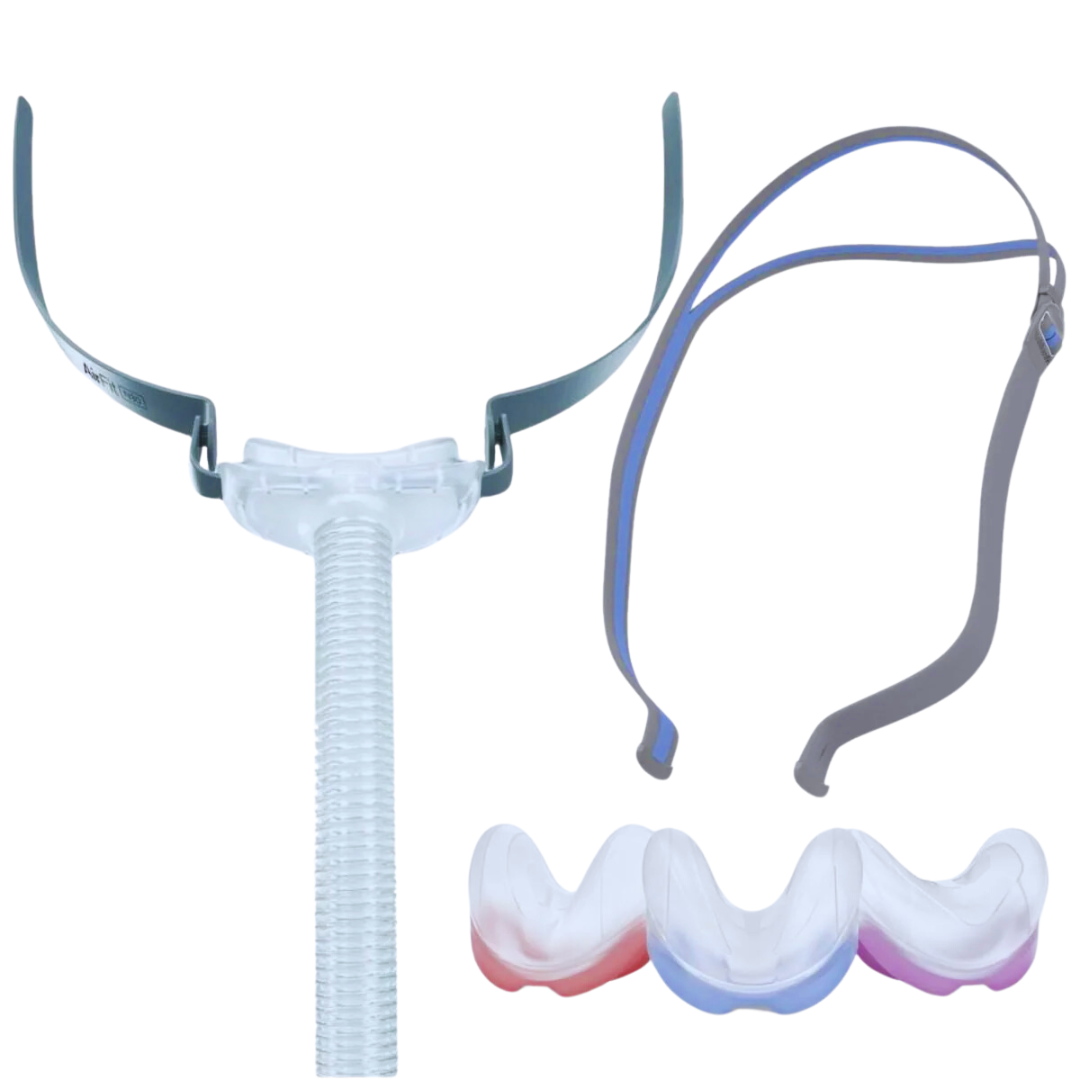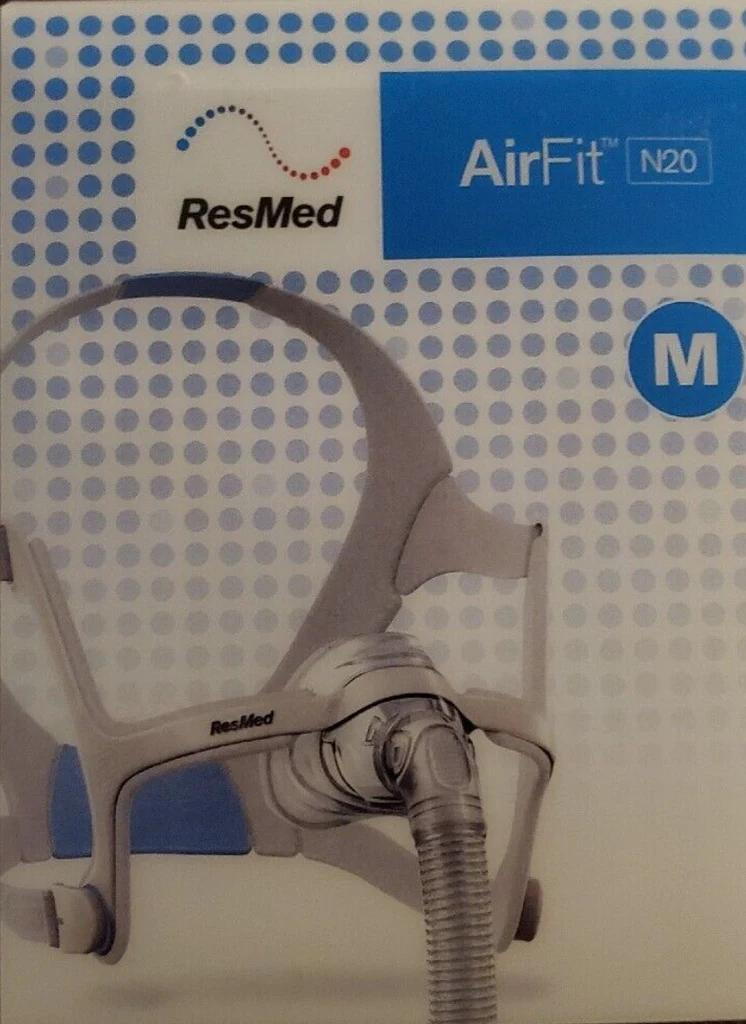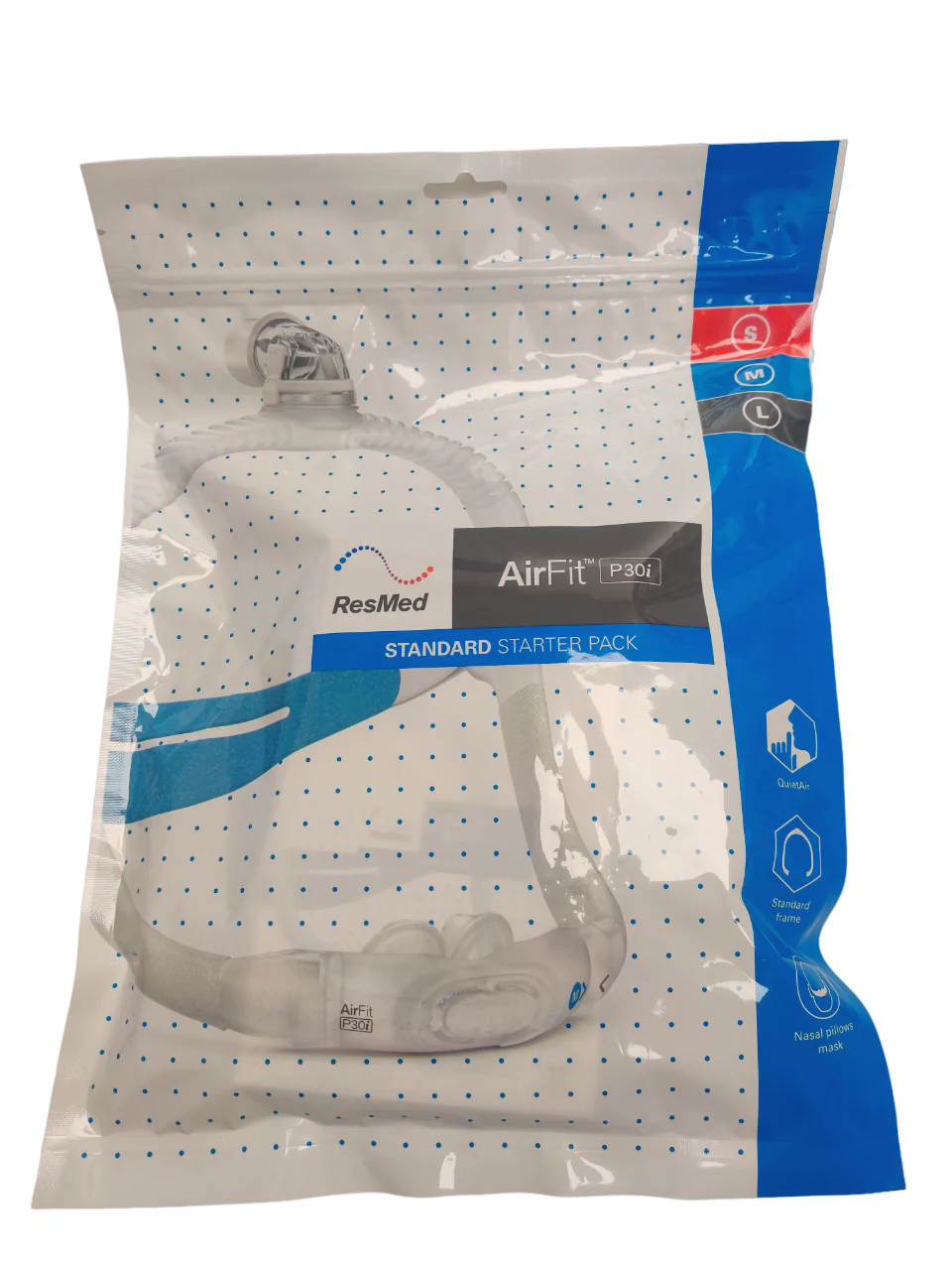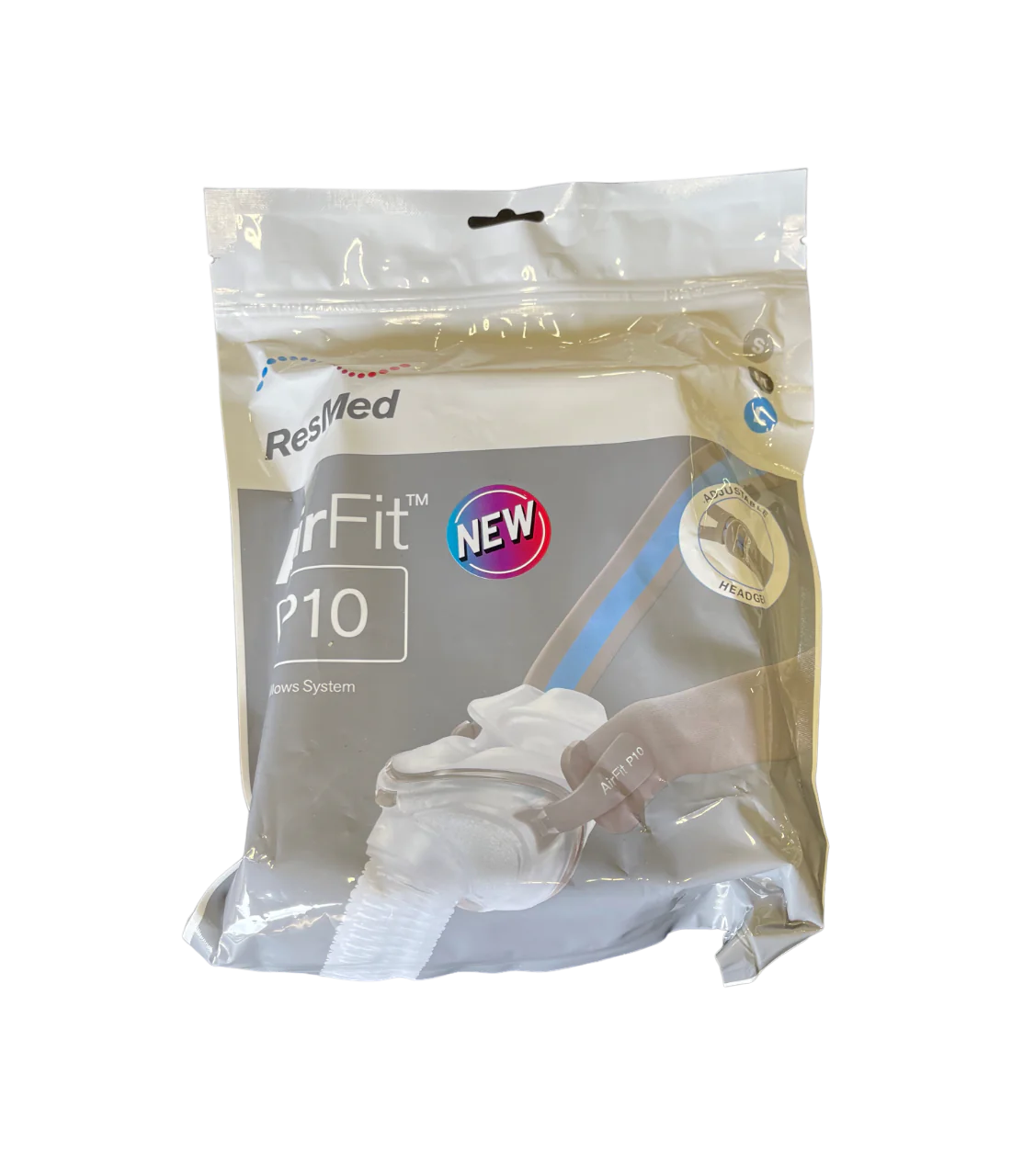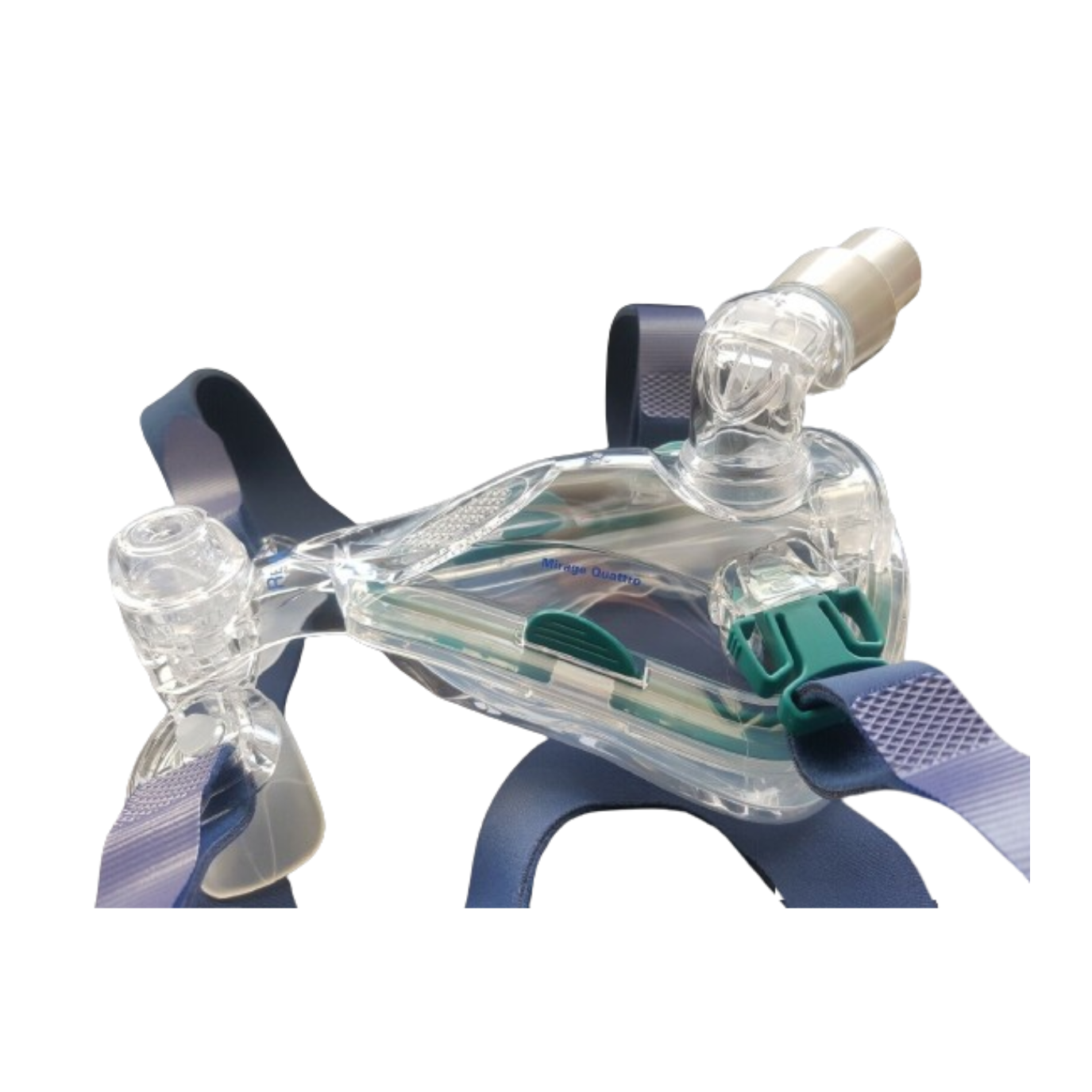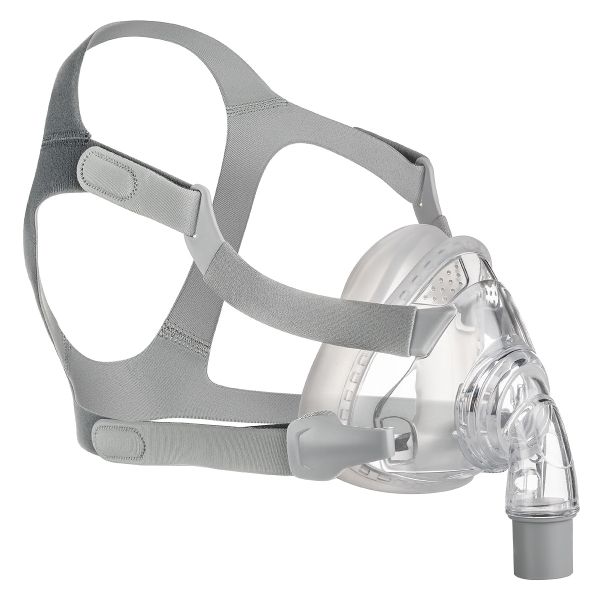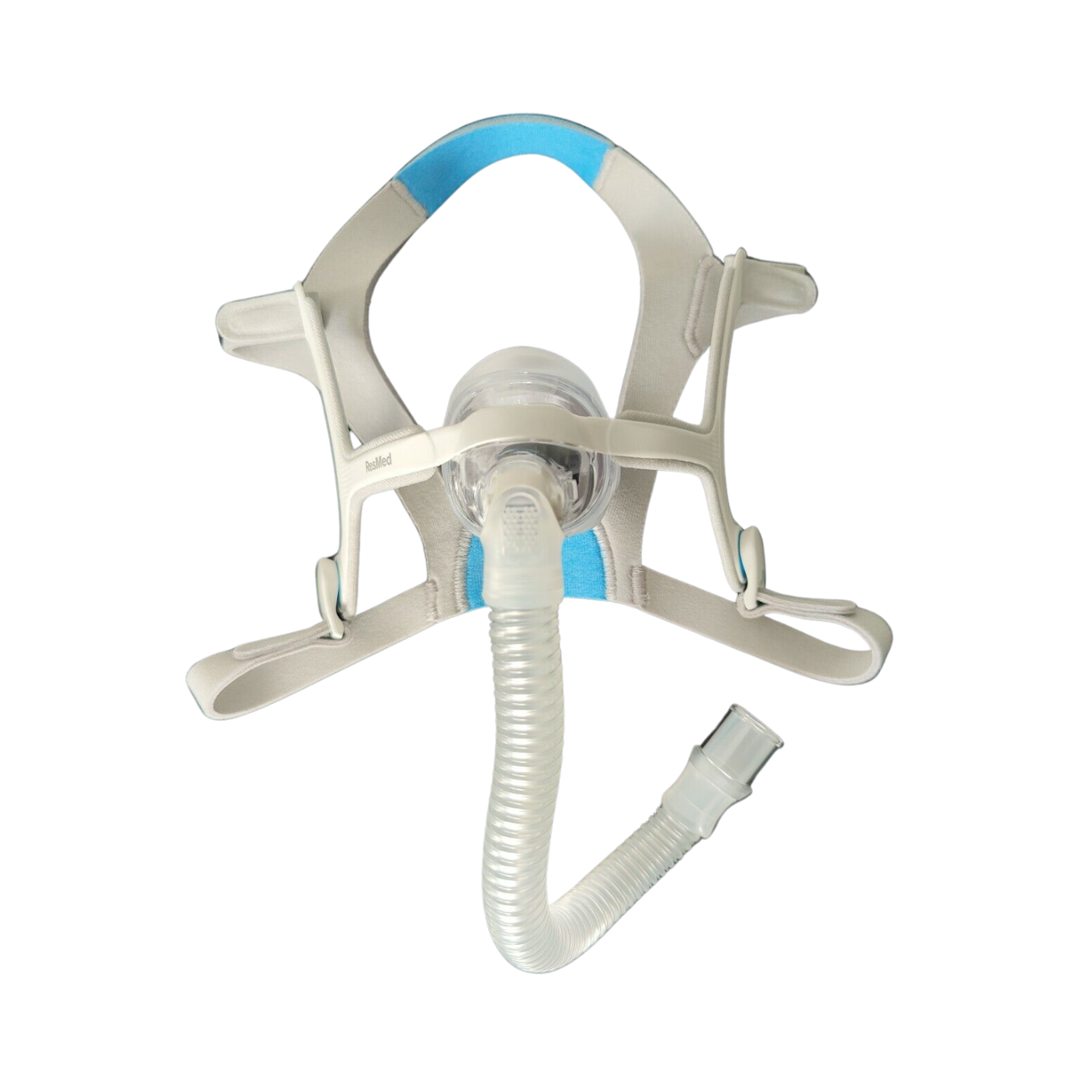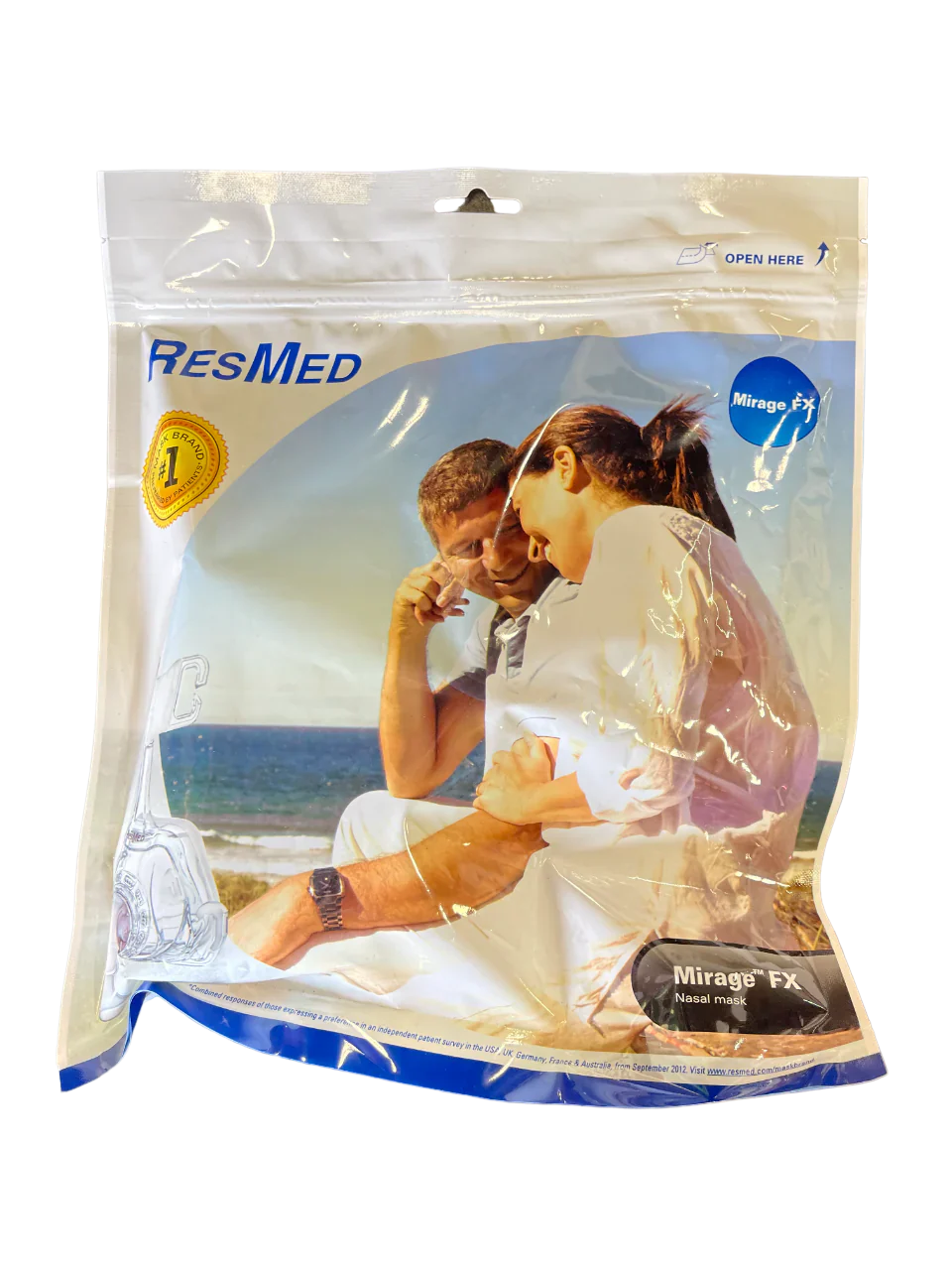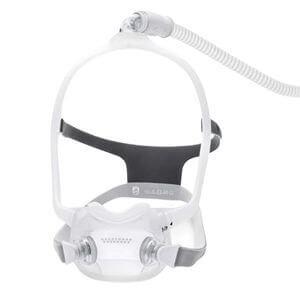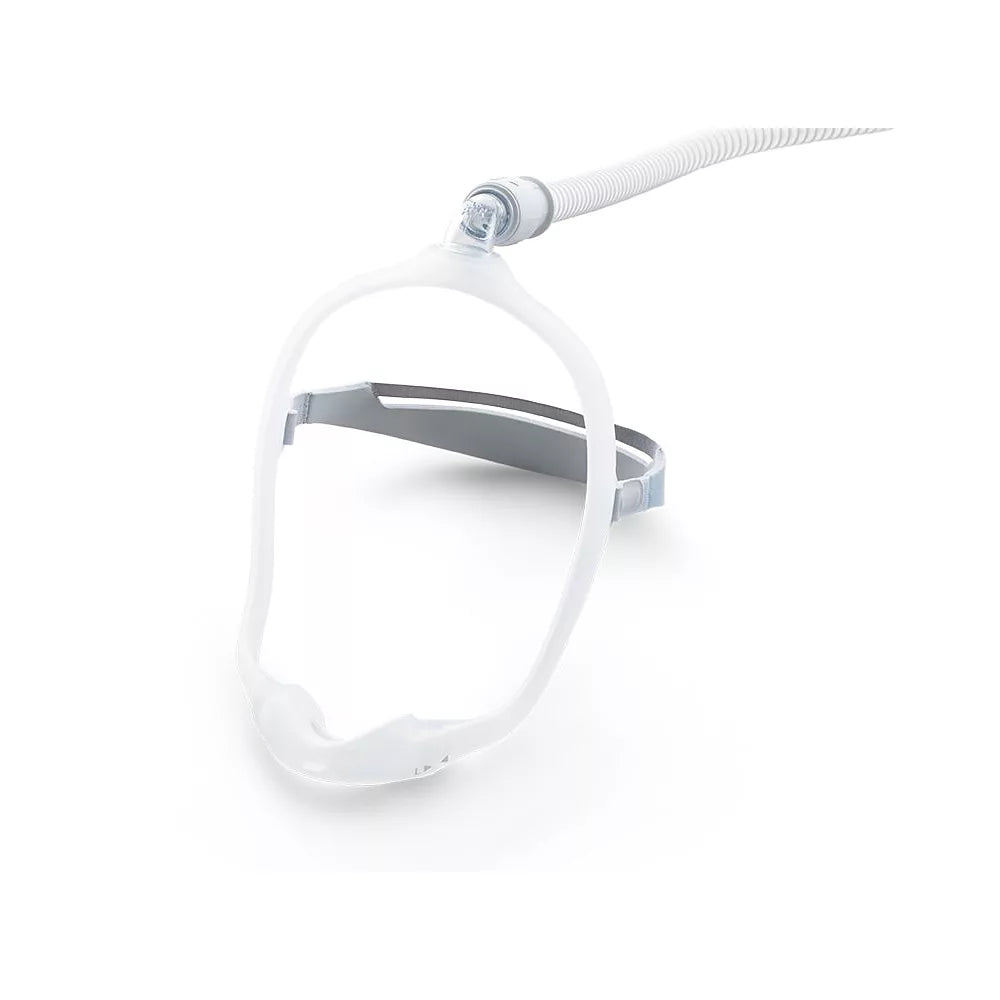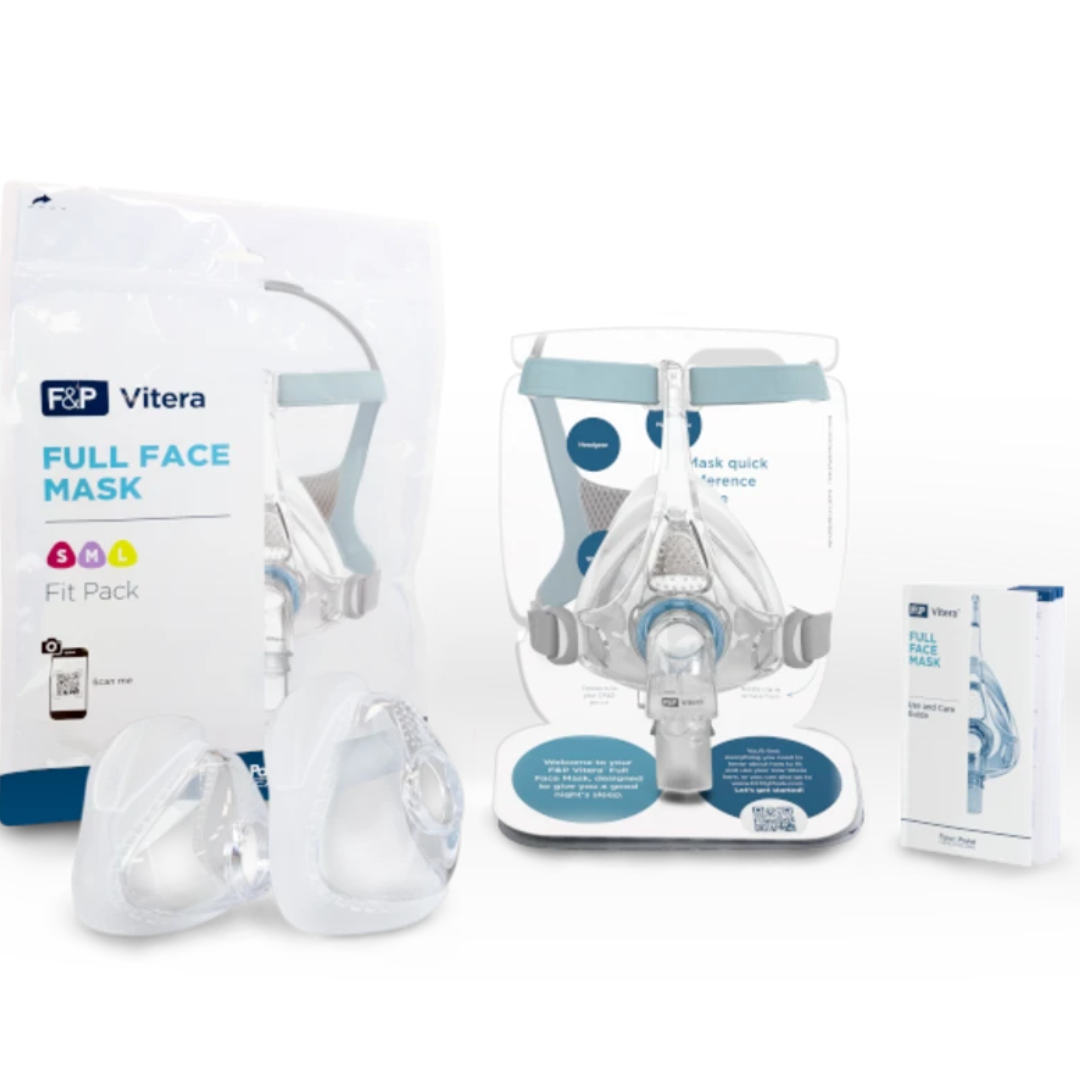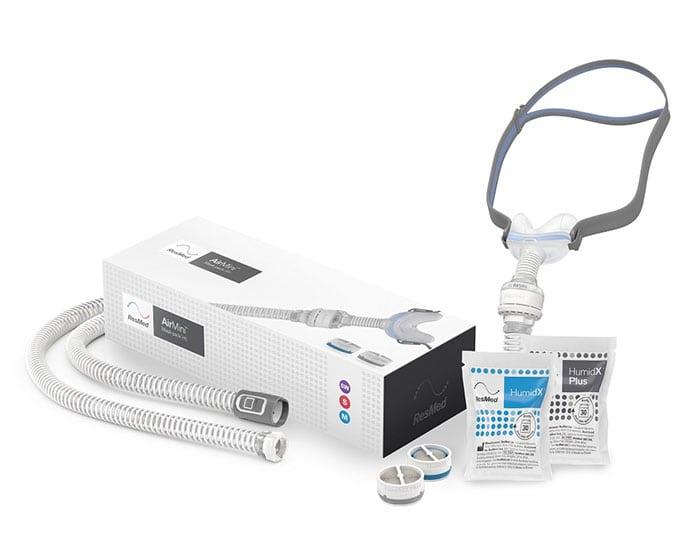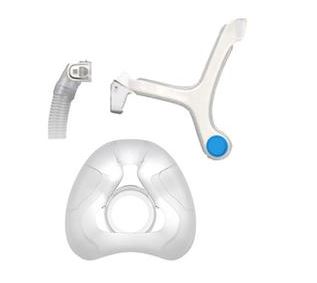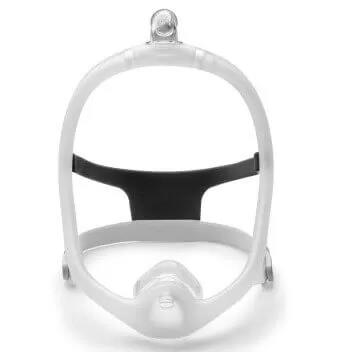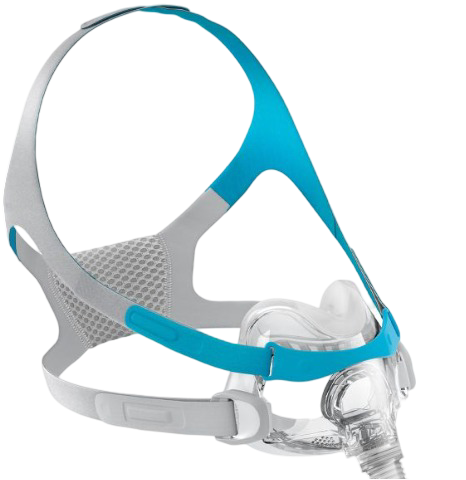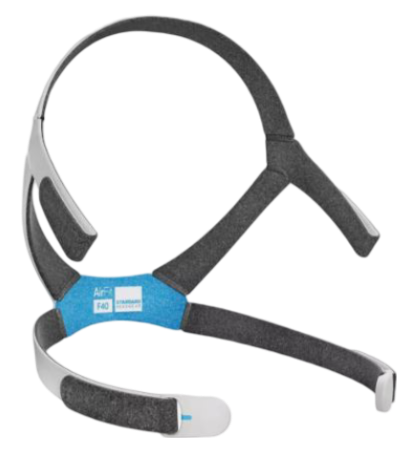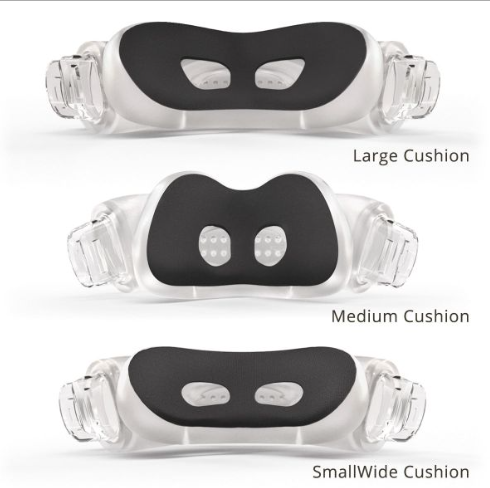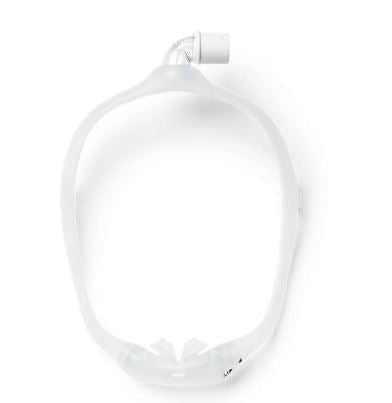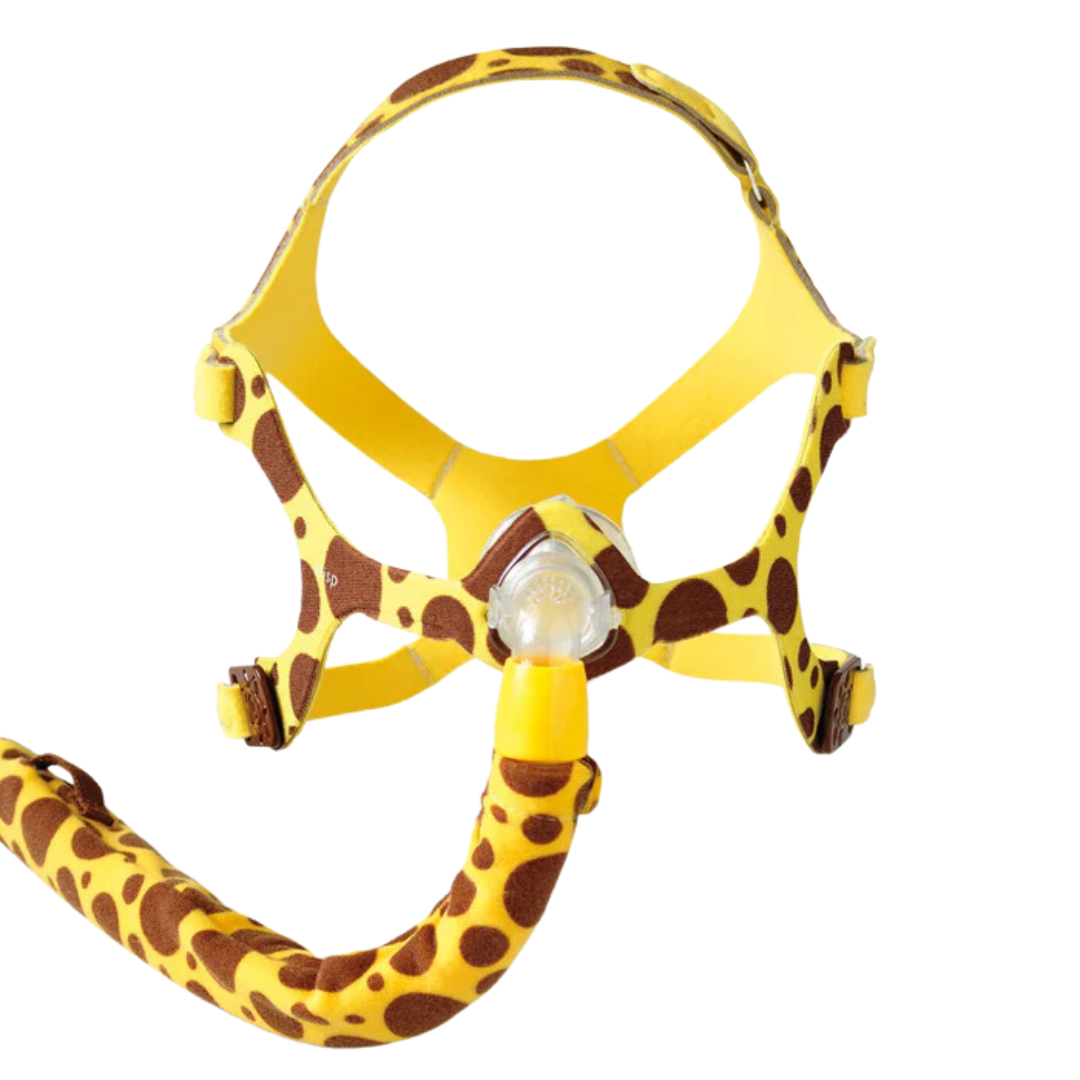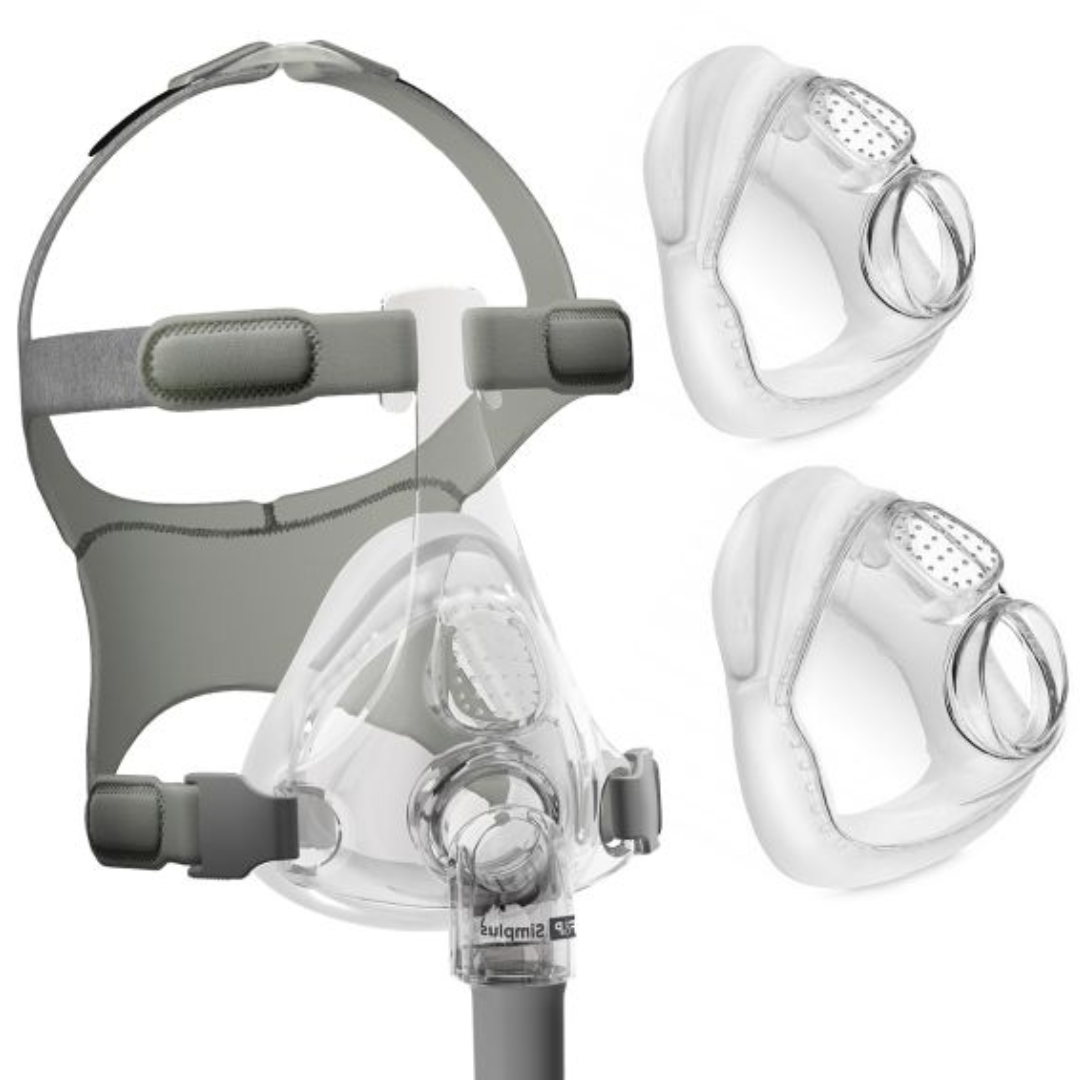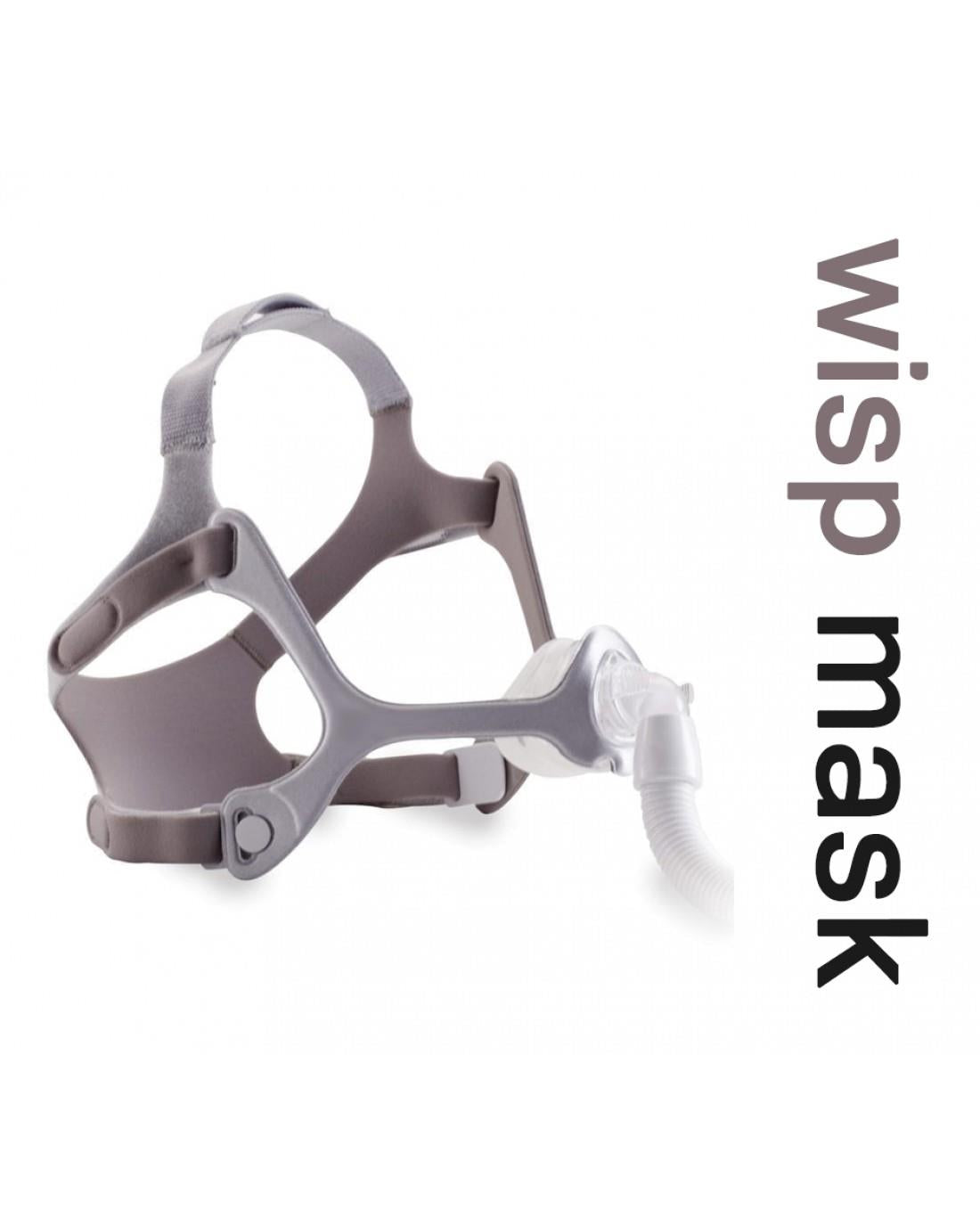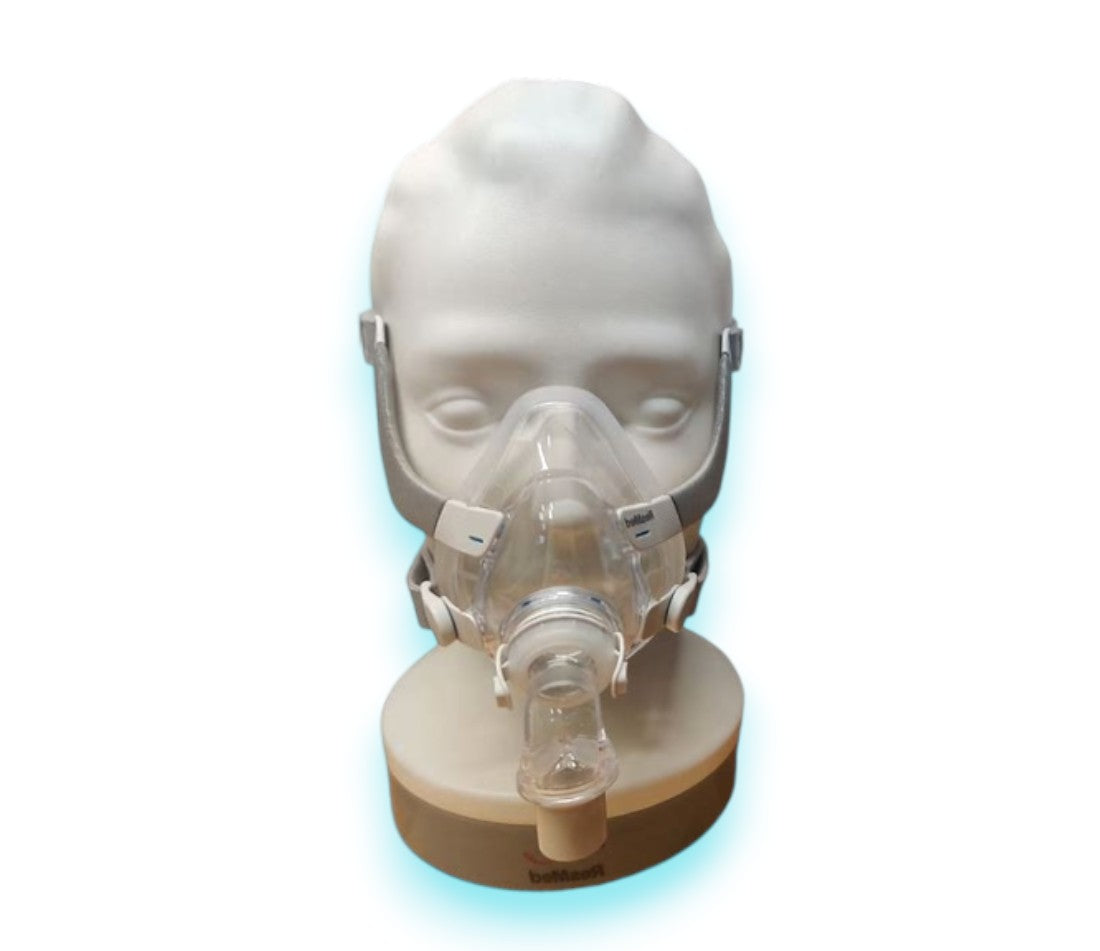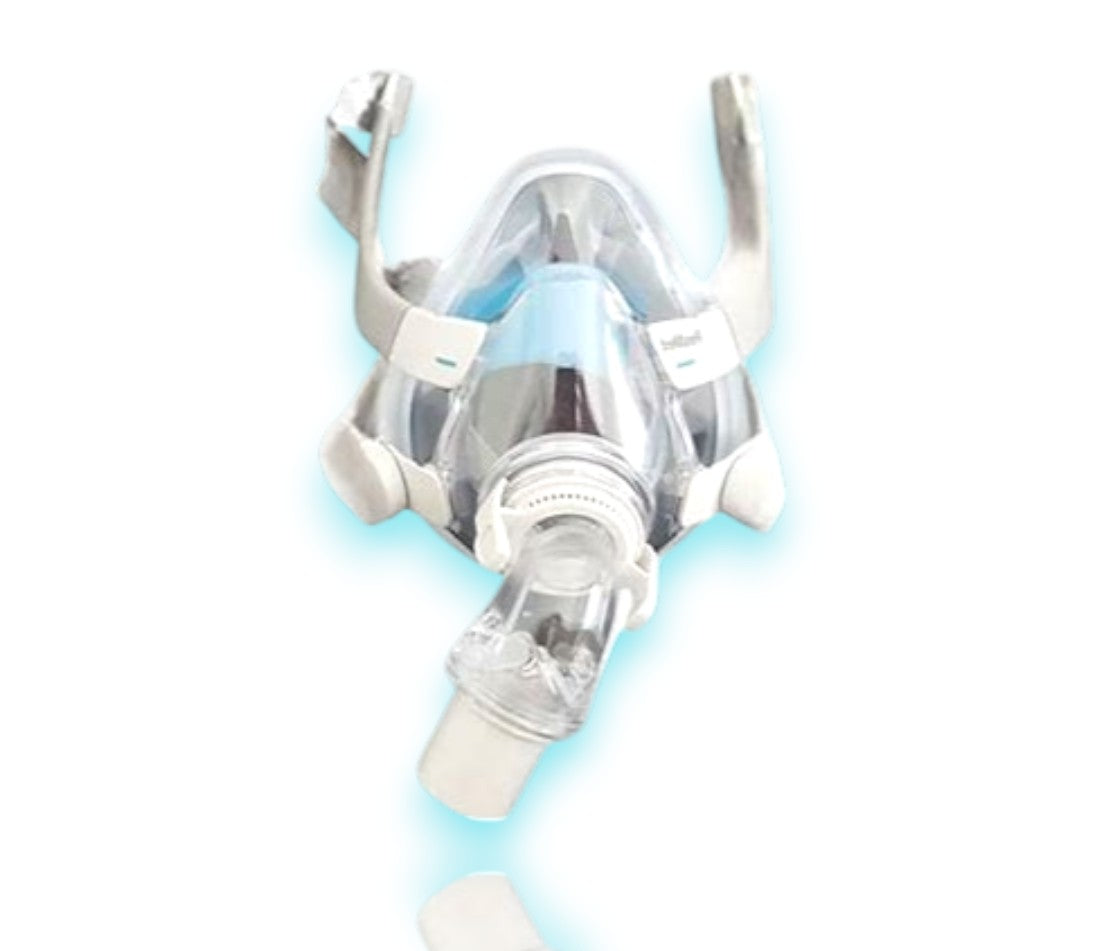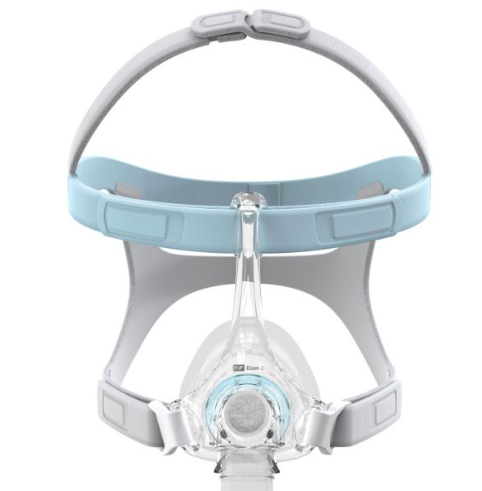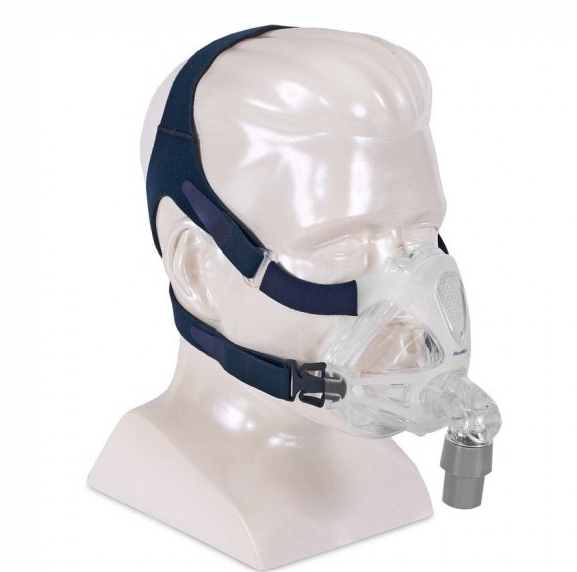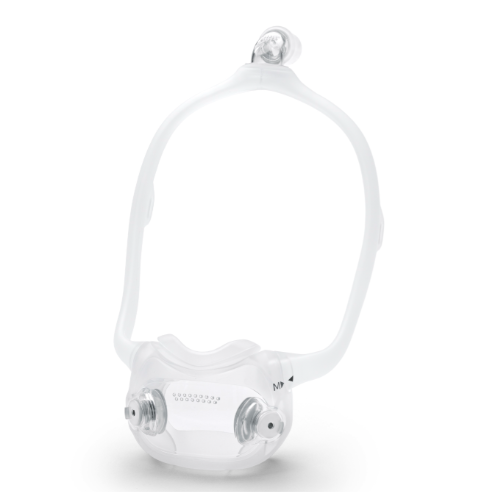The Best CPAP Masks: For All Breathing Styles & Sleepers – Find Nasal, Nasal Pillow & Full-Face CPAP Masks
CPAP Masks
Discover the ideal sleep apnea mask for your therapy needs in our carefully curated selection. Whether you're a seasoned CPAP user or just beginning your journey, a well-fitting CPAP mask is essential for a comfortable and effective experience. Our range includes nasal, nasal pillow, and full face options, catering to various breathing styles and individual preferences. With popular brands and... Read More
Our Top Rated CPAP Masks For Sale
Buy CPAP Masks Based on Its Type
Full face masks: Designed to cover both the nose and mouth, full-face masks are suitable for individuals who breathe through their mouths during sleep or those who experience nasal congestion. They offer a comfortable seal, ensuring effective therapy regardless of breathing patterns. Full face masks are often the most effective type of CPAP mask for sleep apnea therapy.
Nasal masks: Ideal for those who breathe through their noses, nasal masks cover the nose area, providing a secure fit and delivering therapy air directly to the nasal passages. They are a popular choice for users who prefer a compact and lightweight design. These masks cover your nose only, making them more comfortable than full face masks for many users.
Nasal pillow masks: These masks rest under your nose and do not cover your mouth. CPAP nasal pillow masks are compact and lightweight, featuring small inserts that seal around the nostrils. This type of mask is an excellent option for users who prefer minimal facial contact while still benefiting from effective CPAP therapy. They are often considered the most comfortable CPAP masks, but they may not be suitable for everyone with sleep apnea.
How to Choose the Right CPAP Mask?
Mask Type: The type of CPAP mask is crucial and depends on individual preferences and comfort. Options include nasal masks, full-face masks, nasal pillow masks, hybrid masks, oral masks, and total face masks. Each type caters to different breathing patterns and preferences, so choosing the right one is essential for effective sleep apnea therapy.
Comfort and Fit: Comfort is paramount for successful CPAP therapy. The mask should create a secure seal without causing discomfort or pressure points. Look for adjustable straps, cushioning, and a design that minimizes contact with sensitive areas, ensuring a snug yet comfortable fit.
Size and Weight: CPAP masks come in various sizes, and selecting the right size is crucial for an effective seal. Additionally, consider the weight of the mask, especially if you tend to move around during sleep. Lightweight masks are generally more comfortable for extended use.
Mask Adjustability: Choose a mask with adjustable features to customize the fit based on your facial contours and preferences. Adjustable headgear, straps, and cushion positions can contribute to a more personalized and comfortable experience.
Quiet Operation: Some users are sensitive to noise, and choosing a CPAP mask with quiet operation can enhance the overall sleep environment. Consider masks designed with noise reduction features to minimize disturbances during use.
Cleaning and Maintenance: Regular cleaning is essential to maintain the hygiene of your sleep apnea mask. Opt for masks with detachable components and user-friendly designs that facilitate easy disassembly and cleaning. Additionally, check for compatibility with mask cleaning accessories.
Durability and Materials: Consider the durability of the mask and the quality of materials used in its construction. High-quality materials can contribute to a longer lifespan for the mask, reducing the frequency of replacements and overall cost of ownership.
Compatibility with CPAP Machine: Ensure that the chosen CPAP mask is compatible with your specific CPAP machine. Different machines may have varying pressure settings and airflow requirements, so compatibility is crucial for optimal therapy.
Insurance Coverage and Cost: Check with your insurance provider to understand coverage for sleep apnea masks. Consider the overall cost, including potential out-of-pocket expenses, and balance it with the features and benefits offered by the mask.
Trial Period and Return Policy: Many suppliers offer trial periods or return policies for CPAP masks. Take advantage of these options to test the mask's comfort and effectiveness in your sleep environment, ensuring that it meets your expectations before committing to a purchase. Taking the time to assess these factors and consulting with a healthcare professional or CPAP specialist can help you make an informed decision, ultimately leading to a more successful and comfortable CPAP therapy experience.
Parts of Sleep Apnea Mask
Cushion or Seal: The cushion or seal is the part of the mask that comes into direct contact with the face. It is usually made of soft silicone or gel material to provide a comfortable and effective seal. The quality of the seal is crucial for preventing air leaks.
Frame: The frame of the CPAP mask provides structural support and connects the cushion to the headgear. It is typically made of lightweight materials like plastic or nylon. Some masks have minimalistic frames to reduce the overall weight and improve comfort.
Headgear: The headgear is an adjustable strap system that secures the mask in place on the head. It is crucial for maintaining a proper fit throughout the night. Modern headgear designs aim to distribute pressure evenly and minimize discomfort.
Straps and Adjustments: Straps are used to secure the headgear and keep the mask in position. Most CPAP masks have multiple adjustment points, allowing users to customize the fit for their comfort. Quick-release or magnetic clips are often used for easy removal.
Forehead Support (if applicable): Some masks include a forehead support piece to help stabilize the mask and prevent it from shifting during sleep. This is particularly common in full-face and nasal masks.
Elbow and Swivel: The elbow is the part of the mask that connects to the tubing from the CPAP machine. It often includes a swivel that allows for freedom of movement during sleep, reducing strain on the mask and tubing.
Exhalation Ports: Exhalation ports are designed to release exhaled air away from the user's face, reducing the feeling of rebreathing and allowing for a more natural breathing experience.
Micro-Exhalation Holes (if applicable): Some masks have micro-exhalation holes in the cushion to minimize noise and airflow disturbances. This is especially relevant for users with light sleep or sensitive bed partners.
Ventilation Holes: These are strategically placed openings in the mask to allow for the release of excess heat and moisture, contributing to user comfort.
Magnetic Clips or Quick-Release Mechanisms (optional): Some modern CPAP masks feature magnetic clips or quick-release mechanisms for easy attachment and detachment of the mask, making it more convenient for users to put on and take off.
Why Choose Us?
Here's why choosing us is your best decision for a seamless and effective CPAP therapy experience:
Extensive Selection: Explore our curated collection of CPAP masks designed to cater to diverse needs and preferences. From nasal masks to full face masks and nasal pillow masks, we offer a comprehensive range to ensure you find the perfect fit for your comfort and therapy requirements.
Quality Assurance: Our commitment to quality is unwavering. We source CPAP masks from reputable brands known for innovation and effectiveness in sleep therapy. Rest assured, you're investing in products that meet the highest standards of performance and durability.
Expert Guidance: Unsure which CPAP mask is right for you? Our team of knowledgeable experts is here to guide you. Also, you can go through our blogs for further information and making the right choice for you. Whether you're a seasoned CPAP user or just starting, we provide personalized recommendations, ensuring you make an informed choice for your unique sleep needs.
Competitive Pricing: We believe quality sleep therapy should be accessible. Benefit from competitive pricing on top-of-the-line CPAP masks without compromising on quality. Enjoy value for your investment as you embark on a journey to better sleep and well-being.
Easy Ordering Process: Our user-friendly website ensures a hassle-free shopping experience. Easily navigate through our CPAP mask collection, place orders with a few clicks, and have your chosen products delivered promptly.
FAQs
Choosing the right CPAP mask involves considering factors such as your sleep habits, facial structure, and personal comfort preferences. Here are some key steps:
- Consult with your healthcare provider: Seek guidance from your healthcare professional or sleep specialist to determine the most suitable mask based on your specific needs.
- Consider your sleeping position: Whether you sleep on your back, side, or stomach can influence the type of mask that is most comfortable and effective for you.
- Evaluate mask types: CPAP masks come in various styles, including nasal masks, full face masks, and nasal pillow masks. Try different types to see which one feels most comfortable and provides an effective seal.
- Ensure proper fit: A well-fitted mask is crucial for therapy success. Adjust the straps and cushion to achieve a snug yet comfortable fit without leaks.
The best CPAP mask varies from person to person, as individual preferences and needs differ. What works well for one person may not be suitable for another. Factors influencing the best mask include:
- Comfort: The mask should be comfortable to wear throughout the night, promoting better compliance with CPAP therapy.
- Seal and effectiveness: The mask should create a secure seal to prevent air leaks, ensuring the effectiveness of positive airway pressure delivery.
- Sleeping habits: Consider your preferred sleeping position and whether you breathe through your nose or mouth during sleep.
- Mask type: Choose between nasal masks, full face masks, nasal pillow masks, or hybrid masks based on your comfort and therapy requirements.
- Noise level: Some users may prefer quieter masks to minimize disturbances during sleep.
Our committed team is available to support you through every step of your treatment journey.


